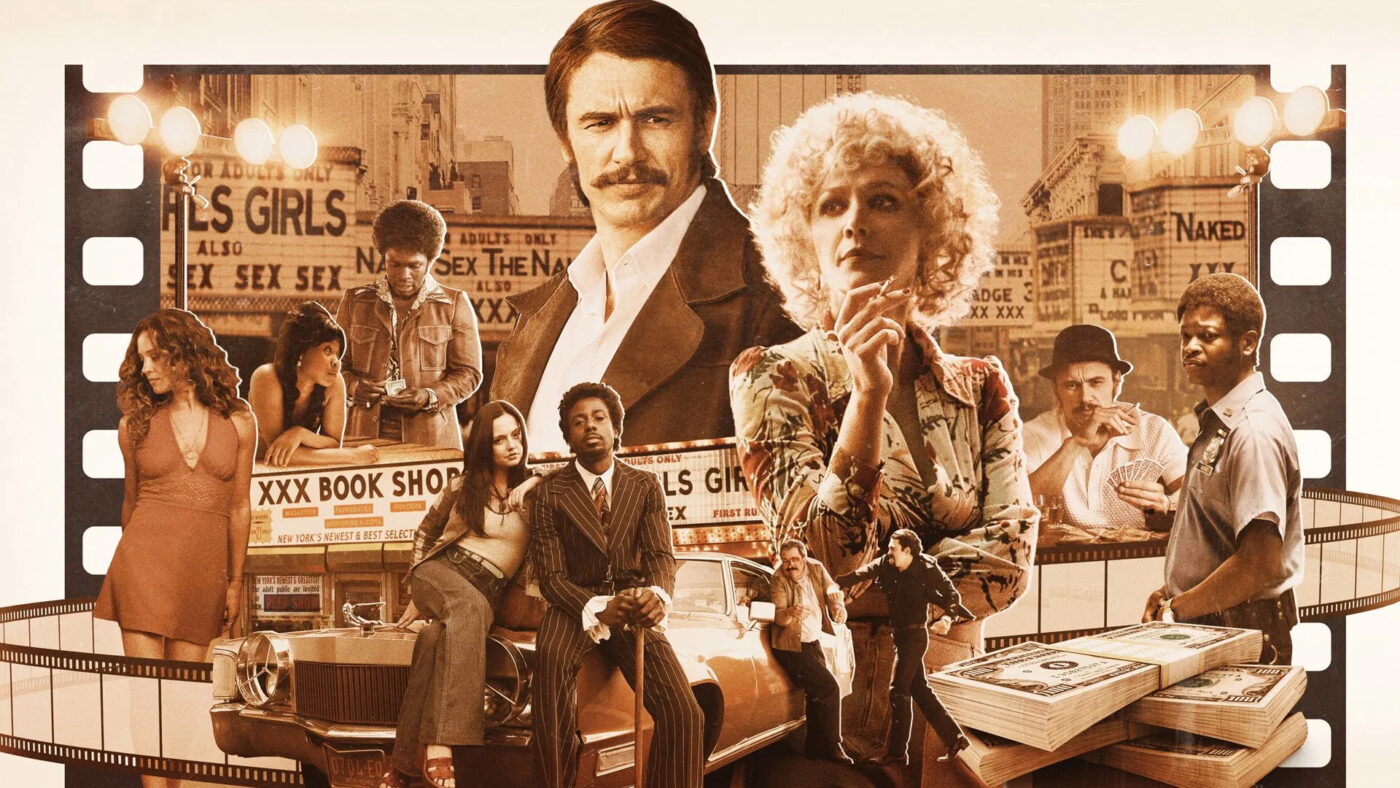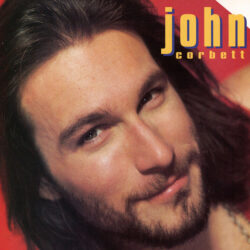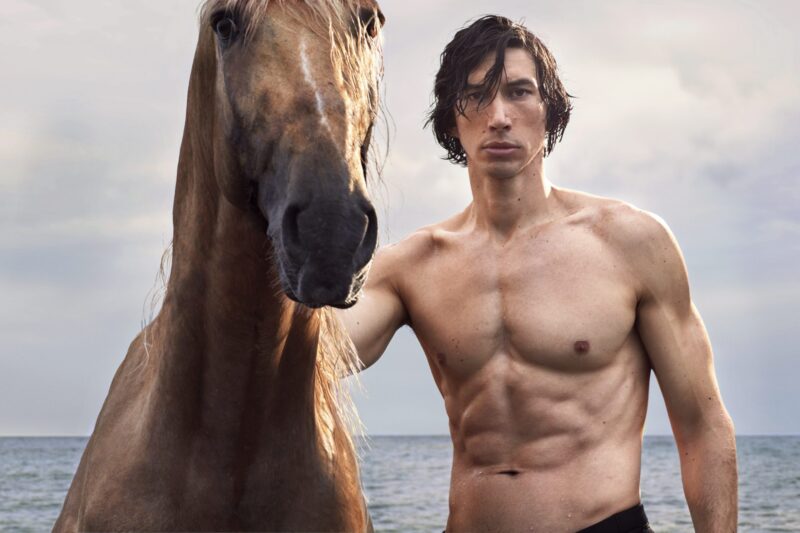What is an intimacy coordinator? SAG-AFTRA’s Standards and Protocols for the Use of Intimacy Coordinators defines them as “an advocate, a liaison between actors and production; a movement coach and/or choreographer in regards to nudity and simulated sex and other intimate and hyper-exposed scenes.”
What does an intimacy coordinator do? The IC “acts as an advocate who serves as a liaison between actors and a production,” SAG-AFTRA continues. “Ensures that performers and other production personnel adhere to proper safety protocols; serves as a resource in realizing a director’s vision; assumes the role of a movement choreographer if requested by the director to enhance believability; strives to build an environment in which actors understand what is expected of them in hyper-exposed scenes and to give their informed and continued consent.”
The importance of consent (“informed and continued”) is self-evident, as it also carries legal implications: Leonard Whiting and the late Olivia Hussey sued Paramount (decades later), alleging sexual abuse and fraud over the bedroom scene in Romeo and Juliet. The lawsuit was dismissed, but there are plenty of other uncomfortable scenes –and of actors pressured into filming them: From Maria Schneider and the infamous ‘butter scene’ in Last Tango in Paris to Emilia Clarke in Games of Thrones.
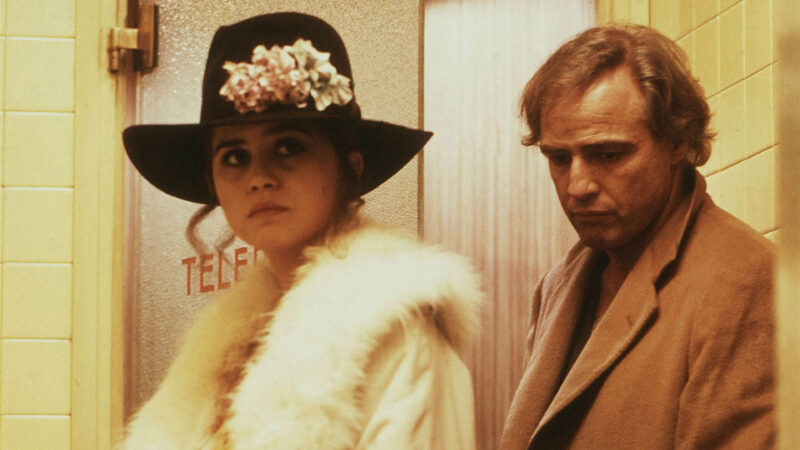
‘Last Tango in Paris’ • Photo: United Artists.
It’s no coincidence that intimacy coordination came into the foreground in 2017 with the Weinstein scandal, the #MeToo movement and the imbalanced power dynamics they exposed. The first film credit is HBO’s The Deuce –same year; since then, certified intimacy coordinators have grown in numbers. They have consolidated and expanded their role in productions big and small (including students’ shorts) and have unionized with SAG-AFTRA, which recognizes “the unique vulnerability that arises for performers, when performing hyper-exposed work.”
In a few short years, intimacy coordination has become the ‘new normal’ in Hollywood. Not without criticism: “It feels like executives taking control away from filmmakers,” says Michael Douglas, while acknowledging “there have been some terrible faux pas and harassment.” And Sean Bean in an interview for The Sunday Times: “It would spoil the spontaneity. It would inhibit me more because it’s drawing attention to things. Somebody saying, ‘Do this, put your hand there, while you touch his thing’ (…) I think the natural way lovers behave would be ruined by someone bringing it right down to a technical exercise.”
Gwyneth Paltrow and Timothée Chalamet waved off their intimacy coordinator in Marty Supreme. “We said, ‘I think we’re good. You can step a little bit back,’” Paltrow recalls for Vanity Fair. “I don’t know how it is for kids who are starting out, but…if someone is like, ‘Okay, and then he’s going to put his hand here’ (…) I would feel, as an artist, very stifled by that (…) I’m from the era where you get naked, you get in bed, the camera’s on.”
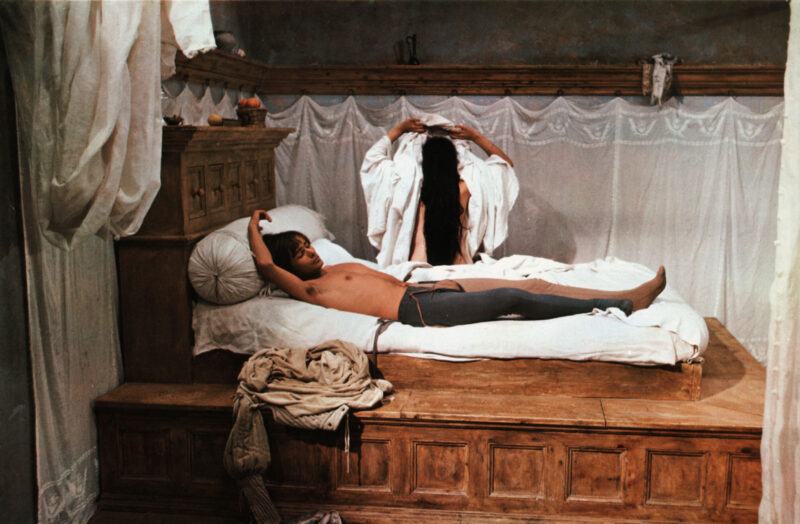
‘Romeo and Juliet’ • Paramount • Photo: Alamy.
On one hand, the safety net provided by the IC; on the other, the freedom and the creative process which some actors feel may be “stifled” by new “standards and protocols.” With valid arguments on both sides. But there’s a third aspect to consider, perhaps less obvious, certainly more censorial: the mandate to regulate sex peeps out from behind SAG-AFTRA’s “intimate scene riders” and the (clumsy) term “hyper-exposed scene.”
“In most societies,” argues director Gasper Noé, “people want to control the sexual behaviour or to organize it in a precise context. Sex is like a danger zone.” To the point that SAG-AFTRA contracts “explicitly prohibit actual sex acts, meaning that at no time should a performer auditioning or working under a SAG-AFTRA contract engage in, or be asked to engage in, actual sex acts. Actual sex includes genital contact without a physical barrier.” Vincent Gallo would have not been able to film the unsimulated fellatio in The Brown Bunny. Marco Bellocchio couldn’t have shot Devil in the Flesh.
What is it that makes nudity so “uncomfortable” (if not outright scary) and what does it say about our culture(s)? Is ‘doing the nasty’ –and its simulation/representation– any different from everything else we experience in our daily lives and reenact on film?

